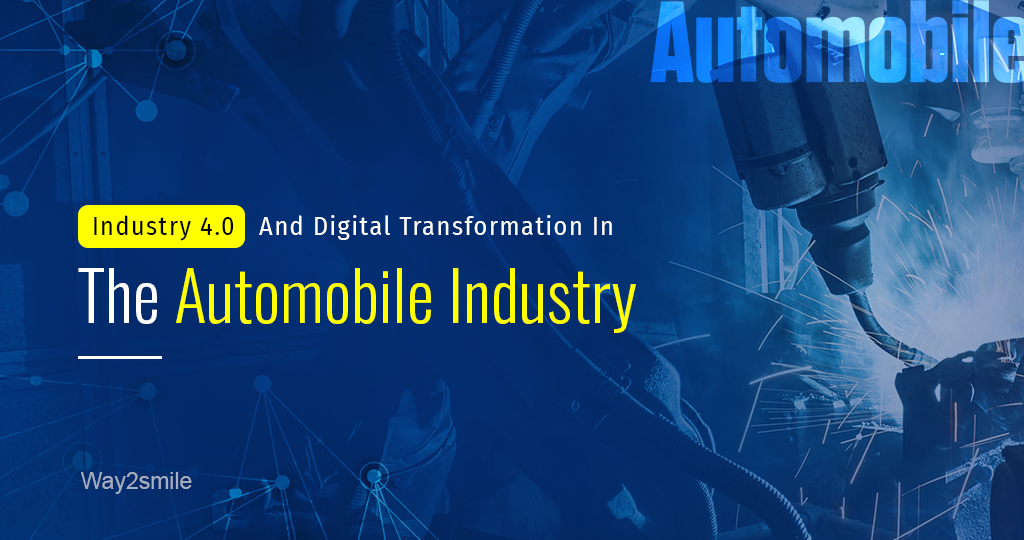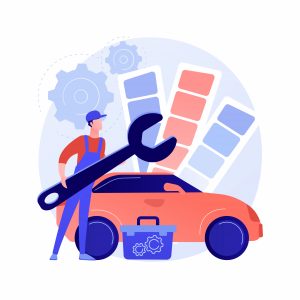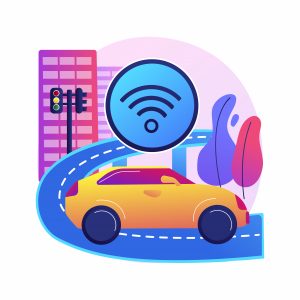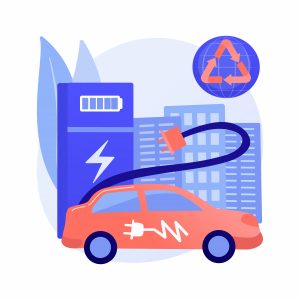
Industry 4.0 And Digital Transformation In The Automobile Industry
The term “INDUSTRY 4.0” is a German initiative. It responds to all the growing needs of the manufacturing sector regarding the customers.
The actual focus of this particular transition is to identify the look at avenues to create an enhanced manufacturing model. This model will have the power to go head-to-head with the economies that carry advantages in labor rates, the cost of productions, and many more.
Industry 4.0 is defined as a framework that can quickly bring out the union of process innovations, collaborative exercises, and technologies. It will bring forth the massive potential of valuable creations in the coming future.

Digital Transformation & Industry 4.0: Why The Automobile Industry?
Many individuals wonder why to choose the automobile sector in particular when it comes to industry 4.0 and digital transformation. Well, there is a reason behind it, and it’s a big one. You see, within several non-automotive firms, the need for customer services has increased dramatically.
It’s because these companies are eyeing customer engagement conduits past the point of vehicles. The OEMs lose their opportunities when it comes to time-to-market reaction, product planning, and newer services. This is because they lack vehicle or customer feedback.
Direct communication between the vehicle/customer and the OEMs will allow the latter to have a good understanding and gauge all the customer preferences. It will also enable the OEMs to lessen some of the inefficiencies in a hassle-free manner.
The consumer is just like the Apple Store model, where all the transactions get monetized. The manufacturers have to work hard to understand the avenues, which will positively impact the ways to magnify the bottom line and the savings.
Hand-picked Related Content – ROI On Digital Transformation Solutions
The Rise Of Connected Vehicles
In this modern realm, connected vehicles are taking the entire blue planet by storm. They have become a leading area towards investment within the automotive sector. Soon, all the aspects of vehicular transportation will be controlled by information technology and telematics.
Currently, the connected vehicles are already providing services for service diagnostics, navigation, multimedia, emergency, and security. These services have become way too comprehensive and have expanded towards the home and office as well.

So, the automotive OEMs have to consider transforming their entire business and offering an integrated transportation experience to each of their customers. Connected vehicles are also providing various other digital capabilities to customers, changing how they interact and use the vehicles.
They are also offering heaps of opportunities to revisit all the revenue information to redefine, extend, and magnify customer communication.
EVs Or Electric Vehicles
So far, the electronic vehicle sales have been pretty disappointing, but the demand for such vehicles is increasing rapidly. Experts have provided evidence that over 35,000 consumers from 20 different nations are considering alternative-fuel vehicles in the coming future.
This is an impressive 41% increase compared with 2019, where only 29% of the respondents claimed to opt for an EV in the future. But the low fuel prices and restrained environmental policy have kept the interest of fully electric and hybrid vehicles at bay, especially within the US.

But within countries like Japan, India, and the UK & US, the lack of EVs infrastructure has become a prime concern among consumers. Generally speaking, the consumers have to be convinced that it’s worth buying an electric vehicle.
To increase the share of electric vehicles, customers have to become pretty motivated, and the infrastructure must be present, the cost needs to go down. But above everything, customers should also receive the same type of experience, which they get through ICE or Internal Combustion Engines.
The Mobility Solutions
Just like all the other businesses, the companies within the automotive sector are also determining how they can stake their claim within the rising mobility solutions business models.
Pollution problems, congestion, and population growth push customers to consider the constraints of greater urban transit data and vehicles. It also makes them consider the restrictions within ubiquitous telecommunications present within the existing and digital things.

But the majority of the customers do not wish to give up access to vehicles. The automakers have been challenged to bundle up the correct mix of cars and other transportations modes into integrated and compelling new offerings.
The need for a digital solution for vehicles and outside of it has become compulsory. Many Digital transformation agencies are helping automotive enterprises by providing advanced assistance systems. Consequently, the power to personalize an electronic experience within the vehicles increases rapidly, with vehicle adjustment, dashboard modification, navigation, and customized media content.
The Megatrends Of Industry 4.0
There are some essential megatrends out there that stand out as crucial enablers of transition for the automotive sector. Some of them are:
Cloud Computing
Sharpening the output and excellence while reducing expenses has always been the main objective of all the process enhancements. Cloud stands out as one of those areas, which can highlight the starting of a brand-new era.
Here, the Internet of Things (IoT) will be utilized as a purchase puller and as a tool, which will improve the bottom-line performance of OEM and improve the internal savings. Latency and criticality will surely be the two main factors that will come into play when deploying cloud within an industrial setting.
The Role Of Analytics
The analysis of Big Data is the starting of the amplified latent for the automotive sector, which will negate all the existing challenges and look way beyond customer expectations. Process improvements, customer behavior, resource optimization, and risk management are the top categories that all manufacturers should utilize for their data penetrations.
This approach will surely provide all the vehicle manufacturers with a view of the imminent trends, which will offer them guide investments and structure research. It will enable automakers to make data-driven decisions and pave the path to avoid all the associated risks and losses.. By linking the production lines with the suppliers, the stakeholders will understand the interdependencies, process cycle times, and the flow of all the materials.
Hand-picked Related Content – Five Key Industry 4.0 Technologies
Summing Up
In this technologically advanced era, all auto firms have to opt for innovation if they want to benefit through the various opportunities within mobility services and connected vehicles. Companies have to create brand-new portfolios of capabilities for responsiveness and flexibility to fast-changing customer needs.
